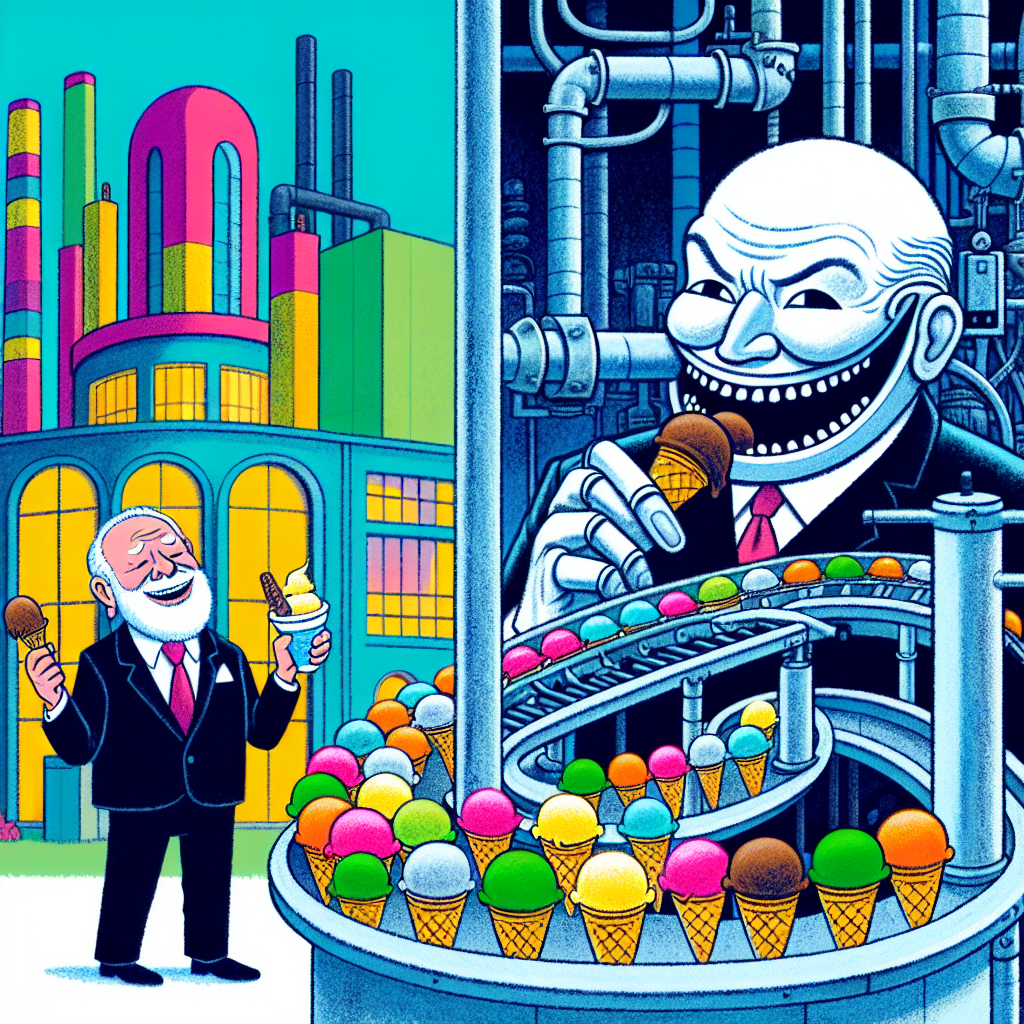Jerry Greenfield’s Departure: A Dark Ode to Corporate Censorship and Lost Integrity

In a world already suffocating under layers of artificiality and fading ideals, the recent exit of Jerry Greenfield, co-founder of Ben & Jerry’s, from the company he helped birth feels like the slow death of a naive hope. Watching a passionate creator step away, swallowed by the machinery of corporate censorship, reveals a bleak truth: beneath the glossy tavern of consumerism, the soul of dissent withers quietly, chained and silenced.
Jerry Greenfield’s departure from Ben & Jerry’s over a dispute with Unilever isn’t just a business headline—it’s a symptomatic eruption of a far more sinister rot. It tells the story of creativity strangled by capitalism, ideals suffocated by shareholder interests, and the reduction of vibrant protest to muted compliance. To many, Ben & Jerry’s stands as a brand that boldly broadcasts social justice from ice cream tubs. Yet, beneath the swirl of cookie dough and fudge chunks lie the unseen gears of a monstrous conglomerate, grinding down the voices it once claimed to amplify.
The entire saga is almost tragically poetic. An iconic company born from activism and counterculture hoodwinks itself into puppetry under a faceless corporate titan. Greenfield, whose initial stirrings were etched in genuine resistance, finds himself barricaded behind walls of bureaucracy, his expressions of justice censored by Unilever’s paranoia and demand for “safe” corporate messaging. This isn't just a quarrel over marketing; it’s the erasure of earnest convictions in favor of sterile profitability.
In the hollow heart of this dispute is the agonizing realization that any attempt to challenge power from within a corporate framework is ultimately doomed to failure. Companies like Unilever thrive on maintaining their sanitized, mass-market images at the expense of truth and authenticity. Their fear of controversy—far from accidental—is a calculated strategy to avoid alienating any slice of their profit-hungry demographic. Irony drips from this arrangement: the very act of censorship Greenfield rebelled against is paraded as “protecting” brand integrity.
This conflict lays bare the grotesque spectacle of corporate activism, a term so riddled with contradiction it might as well be a black comedy script. Big corporations love the aesthetic of rebellion and justice when it sells but recoil instantly when those ideals demand real sacrifice or disrupt their bottom line. The commodification of dissent morphs into a hollow parody where brave stances dissolve into sanitized, brand-safe statements.
One should not be surprised that the spirit of rebellion suffocated within boardrooms is replaced by expedient silence. Yet, it remains bleakly heartbreaking to witness the founder of a brand once synonymous with bold statements and progressive values abandon ship, not out of indifference but out of profound moral conflict. Greenfield’s resignation chants a mournful dirge for integrity lost under the crushing weight of corporate conformity.
The stakes extend far beyond Ben & Jerry’s or even Greenfield’s personal integrity—they echo darker currents about our culture’s willingness to sacrifice meaningful protest on the altar of convenience and profit. When governance prioritizes control over conscience, and shareholders over citizens, the seeds of societal decay are sown. This isn’t a tale isolated to ice cream or a single company; it is an omen of what our world becomes when the commodification of conscience eclipses all else.
The world might as well be encased in a frozen shell, beautiful and enticing on the outside but spread thin with bitterness and emptiness inside. On the surface, brands pretend to care, tokenize causes, and emblazon packaging with hollow slogans. But as the Greenfield episode sharpens into focus, it forces an unavoidable reflection on the sinister cost beneath these gestures.
Is there any space left for genuine activism in an ecosystem so driven by market share? Or has protest been reduced to a cosmetic, performative gesture meant to keep consumers lulled in their comfortable apathy? Somewhere between the shadows of corporate profit margins and performative ‘wokeness’ lies the murky ditch where true conviction drowns.
Jerry Greenfield’s exit from Ben & Jerry’s is a dark testament to this lost cause. It’s a bleeding wound exposed on the corporate skin, reminding us that love for justice and the courage to speak truth to power can struggle to survive in a world where capitalism's ever-hungry maw devours all sincerity. This isn't just a company’s internal drama—it’s a reflection of a much larger malaise that haunts the soul of our times.
In the irony of irony, the very ice cream that delighted so many with ideals of fairness and equity now melts from the heat of corporate compromise. And for those who pay attention, the taste left behind is bitter, cold, and curiously empty—like a hollow promise whispered in a world that no longer listens.

